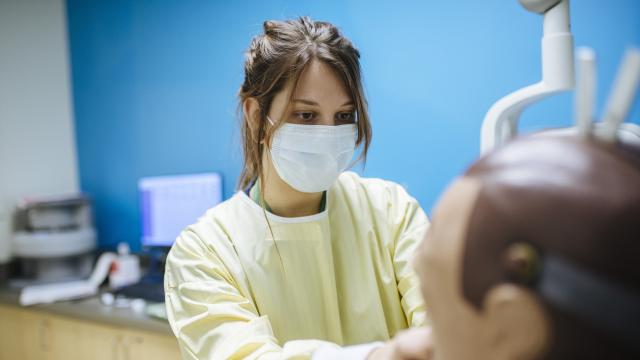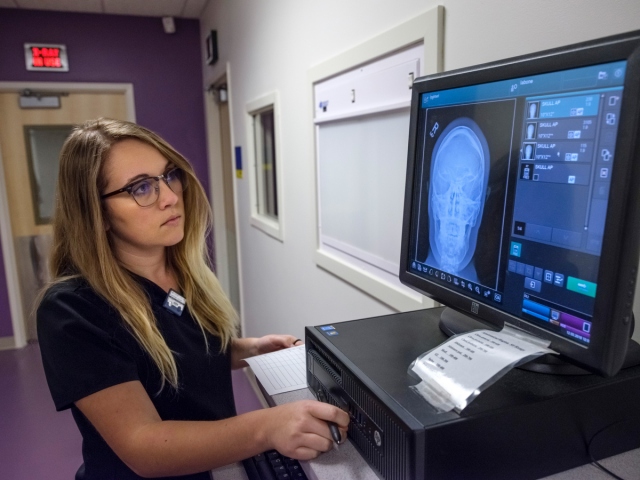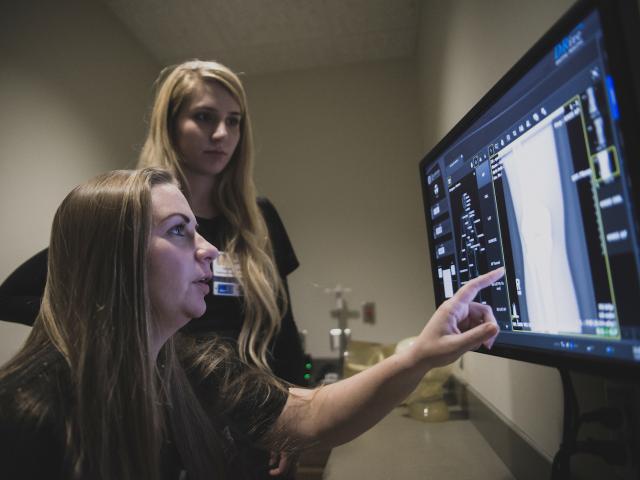
As a neurodiagnostic technologist student, you'll learn how to perform electroencephalograms (EEGs) under the direct supervision of expert faculty and healthcare providers.
What are Electroencephalograms?
EEGs diagnose conditions affecting the brain and nervous system.
As a GRCC student, you'll learn to use state-of-the-art digital equipment to record electrical patterns throughout the brain and nervous system. These patterns help doctors to diagnose and treat abnormalities in the brain that cause conditions such as epilepsy, seizure disorders, strokes, degenerative brain disease and more.
About our Neurodiagnostic Technologist Certificate
We've developed this program with industry leaders in Michigan to meet the high demand of Neurodiagnostic Technologists workers.
- Upon graduation, you'll be ready to get to work or advance your career with a degree.
- Clinical learning experiences are provided by area hospitals, clinics and other outpatient facilities.
- Coursework delivered through an online and hybrid environment and laboratory practice. Both are equally important to the development of the competent neurodiagnostic technologist.
- Some courses must be completed through MWTEC.
- Graduates will be eligible to take the American Board of Registration in Electroencephalographic (ABRET) exam. Upon passing the ABRET exam, you'll have earned your Registered Electroencephalographic Technician license (R.EEG T.).
- The EPiC Consortium Neurodiagnostic Technology (EEG) program is accredited by the Commission on Accreditation of Allied Health Education Programs upon the recommendation of the Committee on Accreditation for Education in Neurodiagnostic Technology. As a member of the EPiC Consortium, the Grand Rapids Community College's Neurodiagnostic Technology (EEG) program is CAAHEP accredited.
Additional Information
Want to learn more about this area of study?
Visit the Department of Imaging Sciences
Questions about this program?
Department email: imagingsciences@grcc.edu
Department phone: (616) 234-4349

